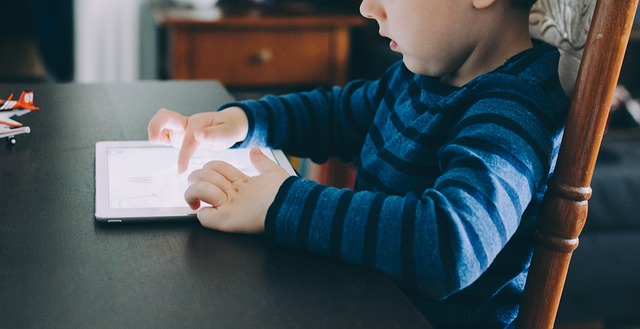 Recent news about how some of Silicon Valley’s most accomplished executives are severely limiting their children’s use of electronic devices has made many a skeptical parent decide to give this subject another look.
Recent news about how some of Silicon Valley’s most accomplished executives are severely limiting their children’s use of electronic devices has made many a skeptical parent decide to give this subject another look.
According to this article by Victoria L. Dunckley, MD, there’s good reason for parents to do so. In her practice, she has seen enough children to identify the symptoms of what she calls “electronic screen syndrome” – children who are hooked on these devices and who now suffer from sensory overload, lack of restorative sleep, and a hyperaroused nervous system.
“These children are impulsive, moody, and can’t pay attention,” Dr. Dunckley writes.
This is not surprising. As of 2014, studies were showing serious problems as a result of even “regular” exposure to devices such as smart phones and ipads.
As Dr. Dunckley summarizes: “In short, excessive screen-time appears to impair brain structure and function. Much of the damage occurs in the brain’s frontal lobe, which undergoes massive changes from puberty until the mid-twenties. Frontal lobe development, in turn, largely determines success in every area of life—from a sense of well-being to academic or career success to relationship skills.”
She goes on to list the latest research which found significant atrophy (shrinkage) in grey matter areas of the brain, such as the frontal lobe, that governs planning, organizing and impulse control.
Another finding of particular concern was damage to an area known is the insula, which is involved in our capacity to develop empathy and compassion for others and our ability to integrate physical signals with emotion. Aside from the obvious link to violent behavior, these skills dictate the depth and quality of personal relationships, she writes.
Research has also found a loss of integrity to the brain’s white matter which results in loss of communication with the brain including connections to and from various lobes of the same hemisphere, links between the right and left hemispheres and between higher (cognitive) and lower (emotional and survival) brain centers.
Impaired cognitive functioning was also discovered in imaging which found less efficient information processing and reduced impulse inhibition, increased sensitivity to rewards and insensitivity to loss, and abnormal spontaneous brain activity associated with poor task performance, she reports.
Another impact is how dopamine function is impaired by video gaming.
“Research on video games have shown dopamine (implicated in reward processing and addiction) is released during gaming . . .and that craving or urges for gaming produces brain changes that are similar to drug cravings,” she adds.
This explains why so many Silicon Valley tech execs won’t let their children play with the very devices that they designed!
For example, Bill Gates, former CEO of Microsoft, did not let his children get cell phones until they turned 14 – even though the average today is 10.
Steve Jobs, the late CEO of Apple, prohibited his children from using an iPad.
Chris Anderson, the former editor of Wired and now the chief executive of a robotics and drone company and founder of GeekDad.com, told The New York Times that when it comes to the impact screen time has on kids, “On the scale between candy and crack cocaine, it’s closer to crack cocaine.”
Technologists who were building these products were naïve, he said.
“We thought we could control it. And this is beyond our power to control. This is going straight to the pleasure centers of the developing brain. This is beyond our capacity as regular parents to understand.”
In his home, there are 12 tech rules that govern the use of electronics by his five children. Among these rules are no phones until the summer before high school, no screens in bedrooms, no iPads at all, and no social media until age 13. In addition, he controls their screen time schedules by Google wifi from his own phone.
He also reports that the administration at his children’s private elementary school introduced iPads and smart whiteboards only to “descend into chaos and then pull back from it all.”
“I didn’t know what we were doing to their brains until I started to observe the symptoms and the consequences,” Mr. Anderson said.
For parents who decide they want to put more limits on their child’s screen time, there is a silver lining. Research has found that once they get beyond the initial grumbling and complaining, it will actually make them happier.
In one recent study that analyzed data from more than one million teens in grades eight through 12, researchers found that teens who spent more time seeing their friends in person, exercising, playing sports, attending religious services, reading or even doing homework were happier than those who spent more time on the internet, social media, or playing video games.
For more help on managing screen-time, visit www.drdunckley.com/videogames/.
Click here for information on parental control apps for electronic devices.
© All Rights Reserved, Living His Life Abundantly®/Women of Grace® http://www.womenofgrace.com









